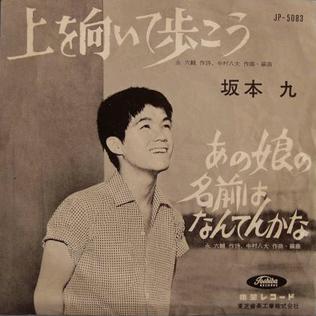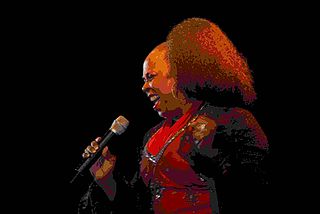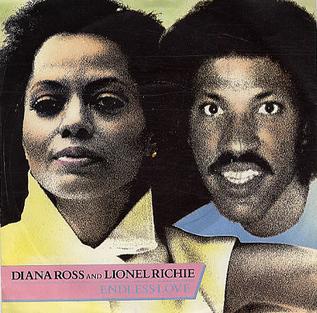
In mathematics, a complex number is an element of a number system that extends the real numbers with a specific element denoted i, called the imaginary unit and satisfying the equation i2 = −1; every complex number can be expressed in the form a + bi, where a and b are real numbers. Because no real number satisfies the above equation, i was called an imaginary number by René Descartes. For the complex number a + bi, a is called the real part and b is called the imaginary part. The set of complex numbers is denoted by either of the symbols or C. Despite the historical nomenclature "imaginary", complex numbers are regarded in the mathematical sciences as just as "real" as the real numbers and are fundamental in many aspects of the scientific description of the natural world.

The Rubik's Cube is a 3-D combination puzzle originally invented in 1974 by Hungarian sculptor and professor of architecture Ernő Rubik. Originally called the Magic Cube, the puzzle was licensed by Rubik to be sold by Ideal Toy Corp in 1980 via businessman Tibor Laczi and Seven Towns founder Tom Kremer. The cube was released internationally in 1980 and became one of the most recognized icons in popular culture. It won the 1980 German Game of the Year special award for Best Puzzle. As of January 2009, 350 million cubes had been sold worldwide, making it the world's bestselling puzzle game and bestselling toy.
Rhythm and blues, frequently abbreviated as R&B or R'n'B, is a genre of popular music that originated in African-American communities in the 1940s. The term was originally used by record companies to describe recordings marketed predominantly to urban African Americans, at a time when "urbane, rocking, jazz based music ... [with a] heavy, insistent beat" was becoming more popular. In the commercial rhythm and blues music typical of the 1950s through the 1970s, the bands usually consisted of piano, one or two guitars, bass, drums, one or more saxophones, and sometimes background vocalists. R&B lyrical themes often encapsulate the African-American experience of pain and the quest for freedom and joy, as well as triumphs and failures in terms of relationships, economics, and aspirations.

KC and the Sunshine Band is an American disco and funk band that was founded in 1973 in Hialeah, Florida. Their best-known songs include the hits "That's the Way ", "(Shake, Shake, Shake) Shake Your Booty", "I'm Your Boogie Man", "Keep It Comin' Love", "Get Down Tonight", "Boogie Shoes", "Please Don't Go" and "Give It Up". The band took its name from lead vocalist Harry Wayne Casey's last name ('KC') and the 'Sunshine Band' from KC's home state of Florida, the Sunshine State. The group has had six top 10 singles, five number one singles and a number two single on the Billboard Hot 100 chart.
Harold Melvin & the Blue Notes were an American soul and R&B vocal group. One of the most popular Philadelphia soul groups of the 1970s, the group's repertoire included soul, R&B, doo-wop, and disco. Founded in Philadelphia, Pennsylvania in the middle of the 1950s as The Charlemagnes, the group is most noted for several hits on Gamble and Huff's Philadelphia International label between 1972 and 1976, although they performed and recorded until Melvin's death in 1997. Despite group founder and original lead singer Harold Melvin's top billing, the Blue Notes' most famous member was Teddy Pendergrass, their lead singer during the successful years at Philadelphia International. The remaining members of the Blue Notes have reunited for Soul Train Cruises in 2013, 2015, and 2017.

James Edward Ingram was an American singer, songwriter and record producer. He was a two-time Grammy Award-winner and a two-time Academy Award nominee for Best Original Song. After beginning his career in 1973, Ingram charted eight Top 40 hits on the U.S. Billboard Hot 100 chart from the early 1980s until the early 1990s, as well as thirteen top 40 hits on the Hot R&B/Hip-Hop Songs chart. In addition, he charted 20 hits on the Adult Contemporary chart. He had two number-one singles on the Hot 100: the first, a duet with fellow R&B artist Patti Austin, 1982's "Baby, Come to Me" topped the U.S. pop chart in 1983; "I Don't Have the Heart", which became his second number-one in 1990 was his only number-one as a solo artist.

Joe Simon was an American soul and R&B musician. He began as a gospel artist singing with the Golden West Singers in the Bay Area in California. A consistent presence on the US charts between 1964 and 1981, Simon charted 51 U.S. Pop and R&B chart hits between 1964 and 1981, including eight times in the US top forty, thirty-eight times in the top 40 of the US R&B charts, and 13 chart hits in Canada. His biggest hits included three number one entries on the US Billboard R&B chart: "The Chokin' Kind" (1969), "Power of Love" (1972), and "Get Down, Get Down " (1975). In 2021, he was one of the 60 nominees for the National Rhythm & Blues Hall of Fame.

"Ue o Muite Arukō", alternatively titled "Sukiyaki", is a song by Japanese crooner Kyu Sakamoto, first released in Japan in 1961. The song topped the charts in a number of countries, including the U.S. Billboard Hot 100 in 1963.

Bessie Regina Norris, better known by her stage name Betty Wright, was an American soul and R&B singer, songwriter and background vocalist. Beginning her professional career in the late 1960s as a teenager, Wright rose to fame in the 1970s with hits such as "Clean Up Woman" and "Tonight Is the Night". Wright was also prominent in her use of whistle register.
Stacy Lattisaw Jackson is an American R&B singer from Washington, D.C., United States.

"Endless Love" is a song written by Lionel Richie and originally recorded as a duet between Richie and fellow R&B singer Diana Ross. In this ballad, the singers declare their "endless love" for one another. It was covered by Luther Vandross with fellow R&B singer Mariah Carey and also by country music singer Shania Twain. Richie's friend Kenny Rogers has also recorded the song. Billboard has named the original version as the greatest song duet of all-time.
Billboard Year-End charts are a cumulative measure of a single or album's performance in the United States, based upon the Billboard magazine charts during any given chart year. Billboard's "chart year" runs from the first Billboard "week" of December to the final week in November, but because the Billboard week is dated in advance of publication, the last calendar week for which sales are counted is usually the third week in November. This altered calendar allows for Billboard to calculate year-end charts and release them in time for its final print issue in the last week of December.

"Celebration" is a 1980 song by American band Kool & the Gang. Released as the first single from their twelfth album, Celebrate! (1980), it was the band's first and only single to reach No. 1 on the US Billboard Hot 100.
"Superstar" is a 1969 song written by Bonnie Bramlett and Leon Russell with a songwriting credit also given to Delaney Bramlett that has been a hit for many artists in different genres and interpretations in the years since; the best-known versions are by the Carpenters in 1971, and by Luther Vandross in 1983.

"When She Was My Girl" is a 1981 single released by American vocal group the Four Tops. The song, their first release off Casablanca Records, helped to return the former signature Motown act to the American pop Top 40 charts, peaking at number 11 on the US Billboard Hot 100, number 10 on the Cashbox chart, and reaching number one on the R&B charts.

"Give It to Me Baby" is a song written by American singer Rick James. Taken from his album Street Songs, the song charted on the Billboard Hot 100, spending two weeks at No. 40 and spent five weeks at No. 1 on the R&B chart. Two other tracks from Street Songs, "Super Freak" and "Ghetto Life", topped the American dance chart for three weeks in the summer of 1981. The song proved to be even more successful with R&B and dance club audiences. Part of the background vocals were sung by former Temptations member Melvin Franklin. The song appears in the 2013 video game Grand Theft Auto V in the fictional radio station Space 103.2.

"How 'Bout Us" is the most successful single released by R&B music group Champaign. Composed by band keyboardist Dana Walden and originally released on the band's debut album How 'Bout Us, the title track peaked at number 12 on the Billboard Hot 100. A romantic ballad, the song was released on Valentine's Day, 1981.

In mathematics, more specifically algebra, abstract algebra or modern algebra is the study of algebraic structures. Algebraic structures include groups, rings, fields, modules, vector spaces, lattices, and algebras over a field. The term abstract algebra was coined in the early 20th century to distinguish this area of study from older parts of algebra, and more specifically from elementary algebra, the use of variables to represent numbers in computation and reasoning.
"Share Your Love with Me" is a song written by Alfred Braggs and Deadric Malone. It was originally recorded by blues singer Bobby "Blue" Bland. Over the years, the song has been covered by various artists, most notably Aretha Franklin who won a Grammy Award for her 1969 rendition. Other artists who covered the song include The Band in 1973, Kenny Rogers in 1981, and most recently, Van Morrison in 2016.